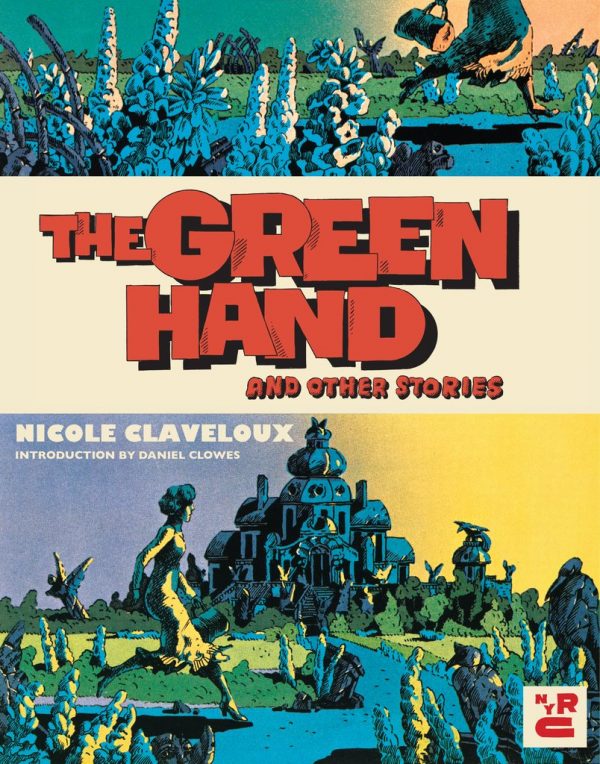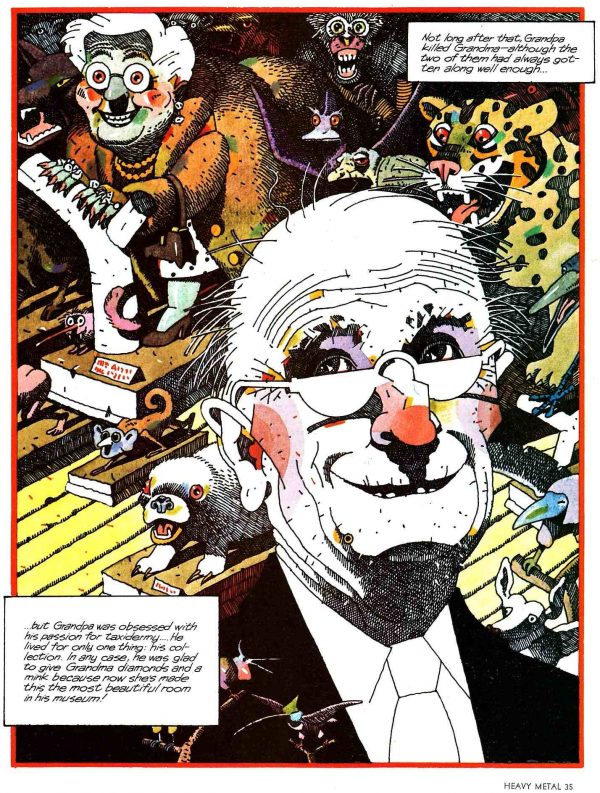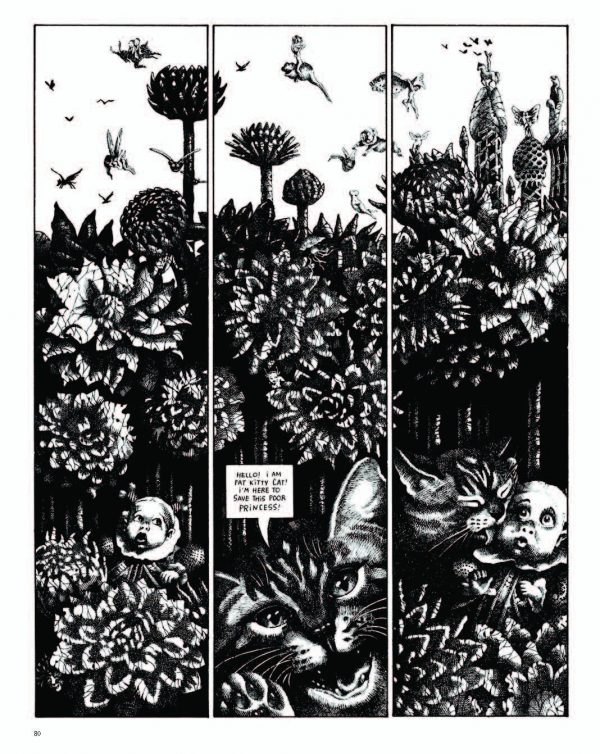Compiled of stories from the 1970s, The Green Hand and Other Stories presents for the first time translated into English the work of French cartoonist Nicole Claveloux, whose surrealist art comics at the time represent her own personal psychological landscapes, while also wrapping in references to European art and literature.
The epic title story “The Green Hand,” written with Edith Zha, begins reasonably enough, with a reclusive woman who brings home a small plant to nurture, much to the annoyance of her ratty bird roommate, who resembles a grump vulture. “Green hand” is the French vernacular equivalent of “green thumb,” and determined to have her potted plant flourish, the woman paints her hand green, thinking this will affect the outcome.
From such a streamlined set-up, the narrative goes bonkers, taking the woman outside of her apartment in a ghostly and cryptic journey through the rest of the apartment building and unveiling the bird as a depressed mess of self-destruction.
Zha’s incoherent — and I use that word as a compliment — scenario is made more otherworldly by Claveloux’s artwork. Cluttered to the brim with a fully-realized universe of twists and turns and patterns, they are often shaded in gaudy, fluorescent blues and greens and pinks and purples that create a candy-coated psychedelia.
The rest of the stories are much shorter and written by Claveloux. My favorite is “No Family,” one of the darker works in the book and featuring an amusing chaotic quality accentuated by cluttered and almost oppressive illustration. A series of full-page illustrations with narration, it’s a sprawling tale of murder after murder, with death winding its way through a family in a hilariously grotesque way.
I also liked “The Little Vegetable Who Dreamed He Was A Panther” which pretty much gives you what the title promises, but turns this specific situation into an examination of goals. Focusing on the process and cataloging the setbacks and rebounds in a vague way that anyone can find themselves in it, the story is ultimately a feel-good one — not of necessarily fully achieving your goals, but of your attempts being worth nearly as much as your success.
One particularly alluring work among the shorter stories is “The Tale of Blondie, Dearest Doe, and Fat Kitty Cat,” a sarcastic fairy tale rendered in meticulous black and white that reminds me of Drew Friedman, though with a collage aspect to it. Blondie is the daughter of King Benet who, as with so many other kings in so many fairy tales, remarries a terrible woman who has her own threatening child and who plots to get rid of Blondie. Her escape from this dark situation is more fairy tale absurdism, like the Grimm Brothers on a particularly naughty day, but the ending is a happy one, at least.
“Underground Chatter” rounds out the collection, cementing Claveloux’s amusement at talky babies. Even with the baby’s inclusion, this story resembles “The Green Hand” in that it begins linearly but explodes into a surrealist frenzy, this one involving fascist control of travel and one woman being caught in a nightmare of officious harassment by an inspector.











Comments are closed.